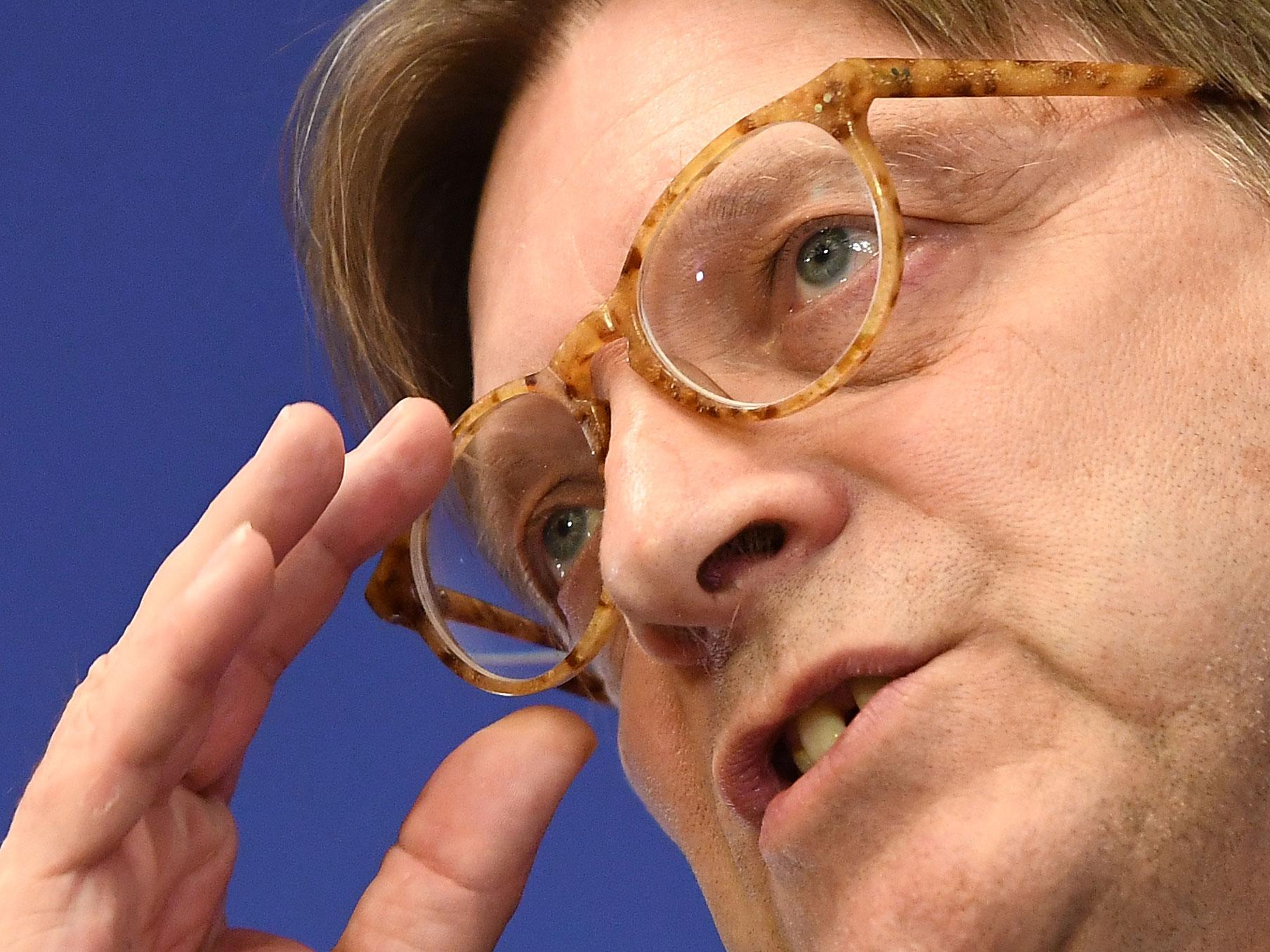Brexit: Guy Verhofstadt warns Theresa May MEPs' voices 'will be heard' before any trade negotiations begin
Exclusive: The European Parliament's chief Brexit coordinator tells The Independent the European Parliament will assess in the autumn if sufficient progress has been made on citizens' rights

Your support helps us to tell the story
From reproductive rights to climate change to Big Tech, The Independent is on the ground when the story is developing. Whether it's investigating the financials of Elon Musk's pro-Trump PAC or producing our latest documentary, 'The A Word', which shines a light on the American women fighting for reproductive rights, we know how important it is to parse out the facts from the messaging.
At such a critical moment in US history, we need reporters on the ground. Your donation allows us to keep sending journalists to speak to both sides of the story.
The Independent is trusted by Americans across the entire political spectrum. And unlike many other quality news outlets, we choose not to lock Americans out of our reporting and analysis with paywalls. We believe quality journalism should be available to everyone, paid for by those who can afford it.
Your support makes all the difference.Theresa May faces another potential obstacle in the Brexit negotiations as the European Parliament’s chief negotiator warns the voices of MEPs “will be heard” before any trade negotiations begin.
Speaking to The Independent, Guy Verhofstadt said that while the European Council and Michel Barnier, the EU’s top negotiator, will ultimately decide when to kick-start trade talks with Britain, MEPs will also provide an assessment to Mr Barnier in the autumn through a resolution.
It is clear that to satisfy the interests of the European Parliament, British negotiators will have to make major progress on the paramount issue of citizens’ rights during the summer months. If they fail to do so, then Mr Verhofstadt will recommend to the council that talks should not enter phase two – Britain’s future relationship with the EU and the Prime Minister’s priority.
Mr Verhofstadt told The Independent: “EU Governments will ultimately assess and decide whether ‘sufficient progress’ has been made on the divorce issues, in order to start discussing what a future EU-UK relationship might look like, in addition to any request by the British Government for transitional arrangements.
“I am adamant that the European Parliament, as the directly elected body representing European citizens, will also provide its assessment to the council, via the adoption of a parliamentary resolution, about whether or not we can go into phase two.
“Our voice will be heard,” he added.
His comments are significant as it was previously thought that just Mr Barnier would present a report card to the 27 EU leaders in the autumn on whether he was satisfied “sufficient progress” had been made in the Brexit talks to proceed to trade negotiations. But it is now clear that British negotiators will also have to satisfy the interests of the European Parliament on the complex issue of citizens’ rights as the institution will provide a separate assessment on progress, creating another potential hurdle for Ms May.
Mr Verhofstadt continued: “We cannot negotiate with ourselves. It would be wrong for the UK Government to take the citizens’ rights issue hostage - the leave campaign promised EU citizens in the UK would be treated ‘no less favourably than they are at present’ – it's time for responsible politicians to deliver on this promise, so EU citizens in the UK and UK citizens in the EU can continue to live their lives as they do now.”
The former Belgian Prime Minister also warned Ms May that “the clock is ticking” and that valuable negotiating time has already been wasted – a reference to the Prime Minister’s unsuccessful snap election gamble that put the Brexit talks aside for three months.
His intervention follows reports that Michael Barnier, the EU's chief Brexit negotiator, had warned talks on a future trade deal could be stalled by two months due to lack of progress on the highly contentious issue of a financial settlement with the UK – often referred to as the so-called “divorce bill”.
While there has been no official figure provided by Mr Barnier’s team, speculation has placed the financial settlement as high as €100bn (£89bn).
In a House of Lords committee earlier this month Mr Verhofstaft also told peers: “We have decided to make a resolution in October-November indicating whether sufficient progress has been made,” he said.
“The council will decide on this, but the parliament will give its assessment on it,” he added. “I do not think it impossible that if we say there has been sufficient progress, the council will say no – or we say there is not sufficient progress but the council says there is. It will be very important when, at the end of October and the beginning of November, we assess whether we can go into phase two.”
Earlier this week Mr Verhofstadt, alongside other MEPs from the Brexit steering group in the European Parliament, met with Mr Barnier to discuss the progress of the talks. In a statement issued shortly after the session, Mr Verhoftstadt added: “The European Parliament cannot be clear enough that sufficient progress means progress across the board, and not just in one or two areas. The European Parliament will formally and in due time indicate when the point of ‘sufficient progress’ has been reached.”
During the second round of Brexit talks last week David Davis, the Brexit Secretary, held a joint press conference with Mr Barnier. But as the talks concluded – before the parliamentary recess – negotiators failed to produce any substantial breakthrough on key disputes, including the financial settlement, the future rights of citizens and the Irish border.
Join our commenting forum
Join thought-provoking conversations, follow other Independent readers and see their replies
Comments